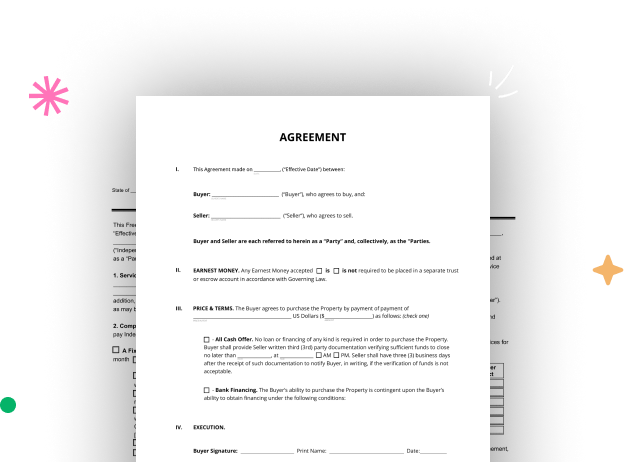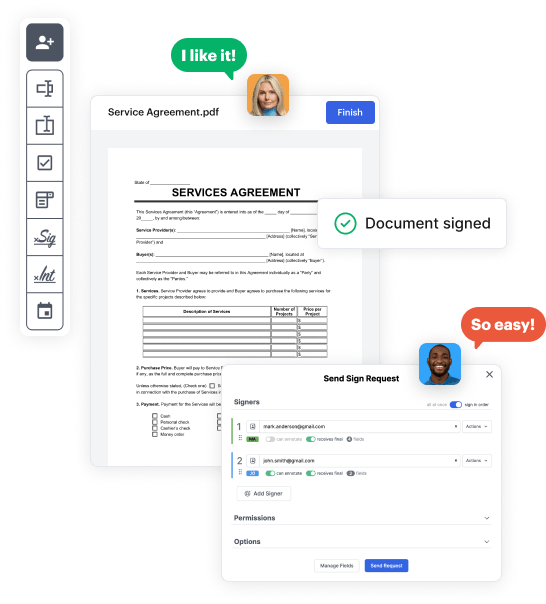

Start by setting up a free DocHub account using any offered sign-up method. If you already have one, simply log in.
Try out the entire collection of DocHub's advanced tools by registering for a free 30-day trial of the Pro plan and proceed to craft your Deeds in Real Estate Transaction.
In your dashboard, hit the New Document button > scroll down and hit Create Blank Document. You will be redirected to the editor.
Utilize the Page Controls icon indicated by the arrow to toggle between two page views and layouts for more convenience.
Explore the top toolbar to add document fields. Insert and configure text boxes, the signature block (if applicable), add photos, and other elements.
Configure the fillable areas you incorporated per your desired layout. Modify each field's size, font, and alignment to ensure the form is user-friendly and neat-looking.
Save the ready-to-go copy in DocHub or in platforms like Google Drive or Dropbox, or create a new Deeds in Real Estate Transaction. Send out your form via email or utilize a public link to reach more people.